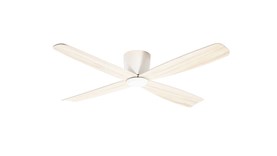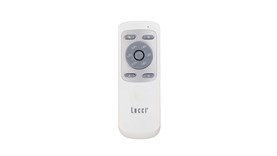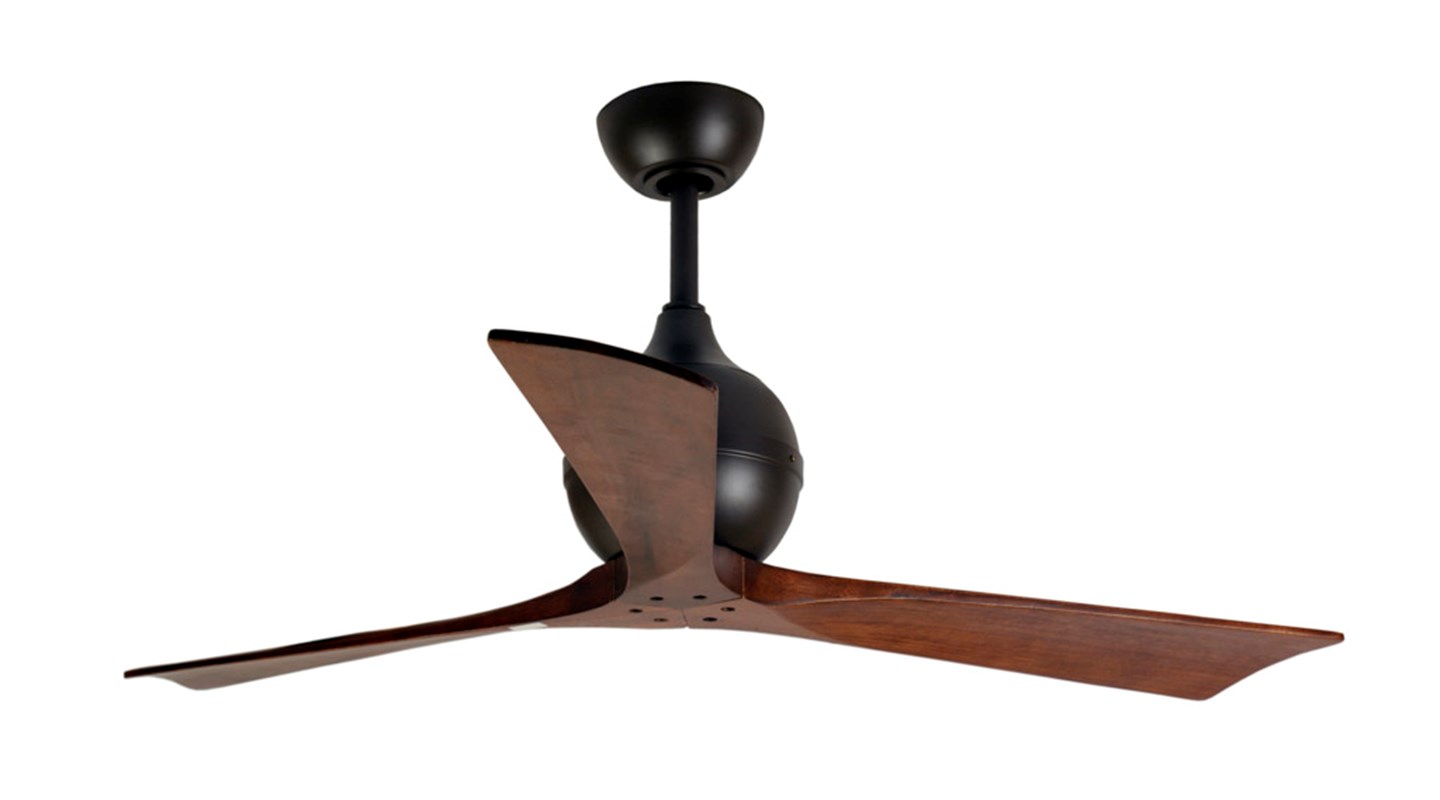Lucci Airfusion Fraser review
DC motor ceiling fan. Priced at $549.


Good points
Bad points

Unlock our expert review and more
- Reviews and ratings you can trust
- Easy side-by-side comparison
- Recommended products at a glance
-
Motor type
View more details.
Ceiling fans using an alternating current (AC) motor are an economical and cost-effective option. However, fans using a direct current (DC) motor delivers even greater efficiency, further lowering the running cost. Speed options with DC models also allow more control over air movement - up to seven settings - compared to most AC models, with only three settings.
- DC
-
Recommended
View more details.
We recommend ceiling fans with a CHOICE Expert Rating of 85%.
-
CHOICE Expert Rating
View more details.
The CHOICE Expert Rating is made up of living room performance (40%), bedroom performance (40%) and ease of use (20%).
-
Living room score
View more details.
Rates the ability of the fan to move air at high speeds, a setting more likely to be used in a larger area during the day. The more powerful, the better the score.
-
Bedroom score
View more details.
Rates the ability of the fan to move a good amount of air at the lowest setting without disrupting your sleep. Models with more than three settings such as the DC powered models with 5 and 6 settings earn a 90% score if the first setting is lower than the optimal air movement speed as one of the other 4 or 5 settings will deliver the appropriate air movement.
-
Ease of use score
View more details.
We assess how easy it is to follow the installation instructions, use the fan control, and reverse the rotational direction of the fan.
-
Noise (dB)
View more details.
The figures provided are for the ceiling fan running at the medium setting which gives a clearer indication of the overall performance of the fan as far as noise. We also make comment if the fan is particularly quiet at all speed settings.
-
Availability
View more details.
'Tested model' refers to ceiling fans that are currently available in shops and online. 'Discontinued model' refers to ceiling fans that are no longer available in shops, but may be available second-hand.
- Discontinued model
-
Price
View more details.
This is the manufacturer's recommended retail price.
- $549
-
Running cost for a year
View more details.
Running cost based on eight hours of use per day for six months of the year, used in summer to keep cool and part of winter to help move warm air down to the living area. Electricity is priced at 40 cents per kWh.
-
Power (low setting, W)
View more details.
Power drawn by the fan at each setting. The higher the speed, the more power drawn.
- 4
-
Power (medium setting, W)
View more details.
Power drawn by the fan at each setting. The higher the speed, the more power drawn.
- 8
-
Power (high setting, W)
View more details.
Power drawn by the fan at each setting. The higher the speed, the more power drawn.
- 30
-
Fan blade material
View more details.
While most fans have wooden blades, a few are stainless steel, aluminium, or plastic (ABS). In testing we've found there's little difference in cooling ability between fan blade material.
- Wood
-
Number of blades
View more details.
Models with three, four, five and even two blades perform at all different rates with no performance trend based on the number used.
- 4
-
Recommended minimum fan height from floor (m)
View more details.
Most of the fans on test operate fine at the standard 2.1 metre level, with a few requiring 2.3 metre clearance.
- 2.1
-
Diameter of blade (cm)
View more details.
A fan with a fan length of 132cm (52-inches) should suit most rooms, you can often select different sizes for each model from 120cm (48-inch) up to 152cm (60-inch) and more.
- 132
-
Widest point of blade (mm)
View more details.
The widest point was measured straight across the widest part of the blade and excluded any parts which were motor housing.
- 146
- Weight of blade (g)
- 346
-
Fan control
View more details.
Fan control options include a pull-cord control on the bottom of the fan or a wall switch that usually replaces the light switch. A remote control not only provides a good level of control, it also allows easier fan installation in situations that make it difficult to rewire for a light switch.
- Remote
-
Number of fan speeds
View more details.
Models with three settings can be restrictive when looking for the best range of air movement solutions. Models with 5 or 6 speeds deliver the range that should satisfy most situations, as long as the slowest speed is not too fast.
- 6
-
Reverse mode
View more details.
Most models have a reverse selection also known as winter mode. It turns the blades in the opposite direction and pushes the warm air from your heating system from the ceiling (remember, warm air rises) back down.
- Yes
-
Reversible control location
View more details.
The selection of the reverse or winter mode can be on the wall switch, remote or sometimes the casing of the fan itself.
- Remote
-
Warranty (years)
View more details.
Stated warranty of the ceiling fan. You're still covered by the Australian Consumer Law regardless of the manufacturer warranty.
- 5
-
Country of origin
View more details.
Where the fan was made.
- Taiwan, China
- Website
- beaconlighting.com.au
-
Remote controlled
View more details.
A remote can be useful for operating and may also make installation easier.
- Yes
-
Remote as an option
View more details.
Most of the models on test can use a remote control although getting one later can be expensive so if you think you want one, get it at the time of purchase.
- Yes
-
Can install outdoors under cover
View more details.
Models that claim to have blade materials that deal with the humidity as well as a motor that is sealed to help keep out moisture.
- No
-
Balance kit provided
View more details.
This helps correct wobbles that can rob a fan of efficiency. Some of the latest models claim to be self balancing.
- No
-
Integrated light on tested model
View more details.
Indicates if there was a light on the model bought for the test. There may be a version of the fan available without a light.
- No
-
Light options
View more details.
While many of the models in our test can accommodate a light after purchase and will have a kit available, some can't and this can cause issues. We recommend checking with the supplier first if you feel you may want a light later on.
- Light kit available






